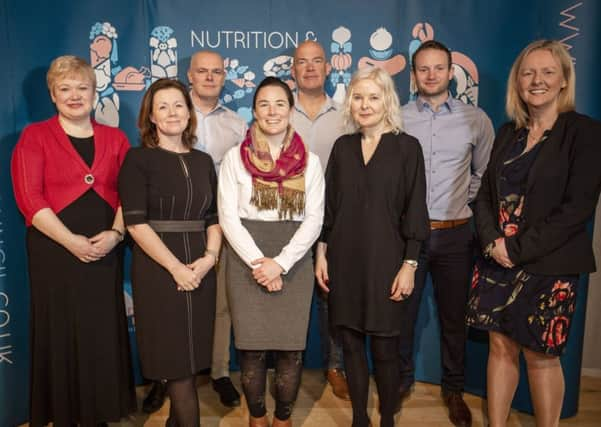Nutrition & Health – What’s New? Conference


Hosted by the Dairy Council for Northern Ireland (DCNI) the event showcased the latest research and new developments in the field of health and nutrition which were presented by leading experts from across Ireland, the UK and Europe.
Professor Luc van Loon who specialises in the physiology of exercise and the impact of activity and diet on muscle metabolism, outlined for guests how even a short period of illness and inactivity can affect an individual’s muscle mass and strength. The speech highlighted recent research which has shown that the muscle protein synthetic response to protein ingestion becomes blunted following a period of disuse. This is particularly evident if there are short successive periods of muscle disuse occurring throughout an individual’s lifespan in times of illness or immobility, and may be instrumental in the progressive loss of muscle mass with aging.
Advertisement
Hide AdAdvertisement
Hide Ad“Our research indicates that a rethink of how we manage the diet and physical activity of older people can have an impact on their muscle mass and strength, and of course, following on from that, their quality of life. Maintenance of habitual protein intake, particularly during periods of illness along with even light activity, can have a significant impact on the loss of muscle mass and strength and, therefore, recovery,” said Professor Van Loon. “Family, carers and medical professionals who take this onboard can make a big difference to the quality of life of the people they are caring for. I’m not talking about root and branch changes to diet and lifestyle; something as simple as helping to ensure protein intake is maintained even when their appetite is low, eating meals sitting out of the bed rather than in it, taking small walks etc, will have positive results.”
Speaking at the conference DCNI’s Dr Carole Lowis said; “The health care professionals including dietitians and practice nurses, and the academics and students who attended this year’s conference had many positive take-aways from a wide range of speakers, from Luc’s presentation on the significance of protein intake and physical activity for older people, Professor Mary Ward on the potential benefits of dairy foods for blood pressure to Dr Brendan Gabriel’s on re-setting the clock in type 2 diabetes and metabolic disease. Dr Sinéad Furey’s presentation on the results from an investigation into food poverty in Northern Ireland, Dr Stephan Peters on healthy, sustainable diets and Emily Foster’s on navigating pseudoscience offered much of real practical value.”